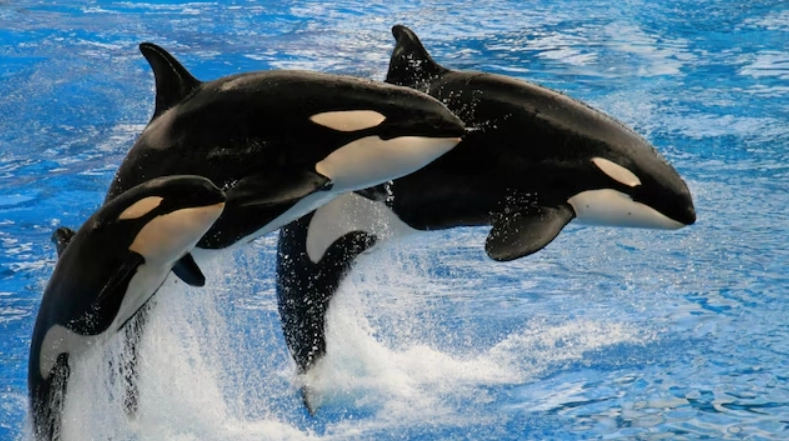
In October 2023, a 4.7-meter-long great white shark washed ashore near Portland, Victoria in Australia. The carcass was missing its liver, digestive system and reproductive organs, raising questions about what could have caused such precise injuries. Now, as per a report in The Guardian, citizen scientists recently spotted a group of killer whales in the area including two well-known orcas, Bent Tip and Ripple. Their presence led researchers to suspect that orcas might have been responsible for the shark’s death.
To confirm this, researchers collected DNA samples from the distinctive bite wounds on the shark’s body. The results, published in Ecology and Evolution, provided clear evidence that killer whales had attacked and killed the shark. The largest wound, a 50-centimetre-wide bite near its pectoral fin, contained killer whale DNA. Genetic material from broadnose sevengill sharks, known scavengers, was also found on some of the smaller bite marks.
This discovery is significant because it marks the first confirmed case using DNA and citizen science data proving that orcas prey on great white sharks in Australian waters. In one reported case in South Africa, an orca disabled a great white and ate its liver in under two minutes.
Isabella Reeves, a Flinders University researcher and the lead author of the findings explained both killer whales and great white sharks are apex predators.
“The carcass found in Victoria had four distinctive bite wounds, one showed killer whales had deliberately torn out its liver," Reeves said as quoted by The Guardian.
“It shows we’re probably really underestimating how often and where this behaviour is occurring," she added.
Reeves also pointed out that this behaviour might be more common than previously thought. More research is needed to understand the extent of orca predation on sharks.
According to the study, killer whales, the largest members of the dolphin family, have a diverse diet that includes marine mammals, fish and sharks. They have been observed preferring whale tongues and shark livers.
Dr Rebecca Wellard, a marine scientist at Project ORCA and Curtin University, noted that orcas are “remarkable predators at the very top of the marine food chain."
She explained that these orcas get their hunting advantage from “their exceptional intelligence, strong family and social bonds, and their ability to work together in highly synchronised pods" which helps them to o take down even massive prey including blue whales.
Dr Olaf Meynecke, a marine ecologist at Griffith University, added that orcas often show a preference for specific body parts, such as whale tongues and shark livers.
“Why the liver is eaten is not fully clear, but could suggest a nutritional deficiency that the orcas try to compensate for," he said.